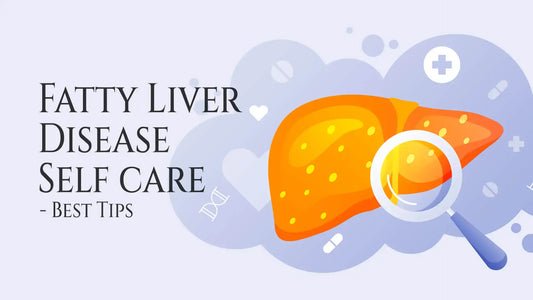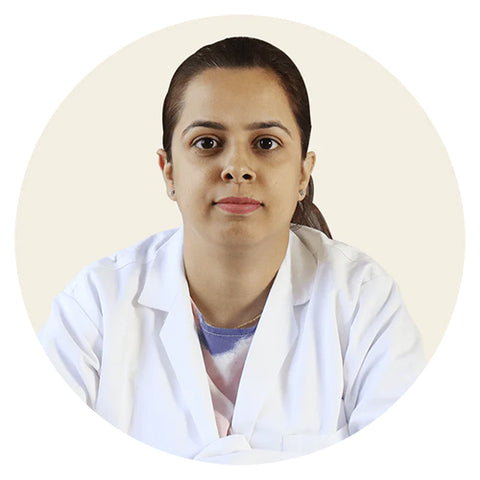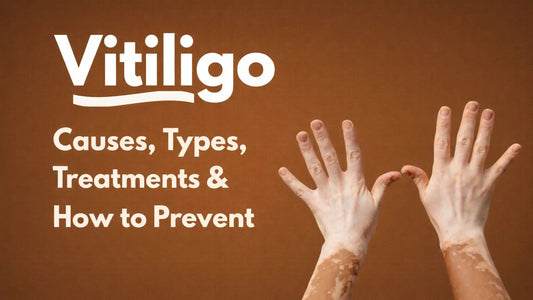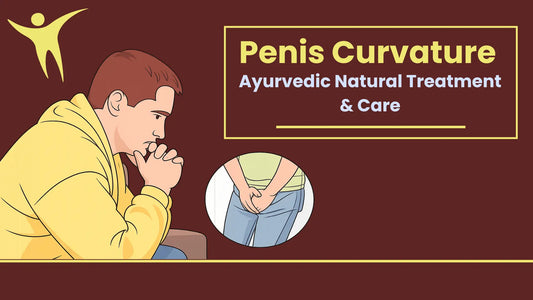
Fatty Liver Disease Self-Care: 11 Effective Tips for Recovery
Fatty liver self care: Did you know that a recent AIIMS study revealed how 38% of Indians suffer from fatty liver disease? That occurs when there’s an excess amount of fat in our liver.
The concerning part is that fatty liver might not show symptoms initially, but it can lead to severe issues like liver damage over time and even liver failure. What if you are one of them?
Worry not, this article will introduce you to fatty liver disease self-care to prevent fat buildup in the liver through dietary and lifestyle changes.
Why Fatty Liver Disease Self-Care is Important?
Having some fat in the liver is normal, but if it exceeds 10% of the liver’s weight, it may indicate fatty liver diseases.
It raises the risk of developing swelling or scarring in the liver, a condition also called cirrhosis, that could even cause liver failure.
Beyond liver damage, fatty liver can increase your risk of:
-
Liver cancer,
-
Heart issues and
-
Kidney problems.
That’s why fatty liver disease self-care is critical. With the right steps, you can repair liver damage naturally, improve liver function, and reduce your long-term health risks.
How to Heal Your Liver Naturally
To nurture your liver’s health, focus on changes that reduce stress on your liver and promote healing. This includes:
-
Eating antioxidant-rich foods to fight cell damage
-
Avoiding toxins such as alcohol and smoking
-
Staying active and sleeping well
Fatty liver, especially in its early stages, can be reversed through simple lifestyle adjustments. Let’s explore the most effective fatty liver disease self-care tips.
11 Best Fatty Liver Disease Self-Care Tips at a Glance
1. Exercise Regularly – Engage in aerobic exercise, resistance training, or daily walking.
2. Follow a Liver-Friendly Diet – Include fruits, veggies, legumes, lean meats, and healthy fats.
3. Avoid Harmful Foods – Red meat, sugars, processed items, and fried foods should be cut down.
4. Stay Hydrated – Drink plenty of water during the day and stay hydrated.
5. Manage Diabetes – Keep blood sugar under control with balanced meals and monitoring.
6. Maintain a Healthy Weight – Lose 7–10% body weight through sustainable habits.
7. Control Cholesterol – Limit saturated, trans fats and prefer healthy fats.
8. Manage Stress – Practice meditation, journaling, or light exercise to reduce stress.
9. Get Quality Sleep – Aim for 7–9 hours of restful sleep daily.
10. Quit Smoking – Avoid nicotine and drugs to prevent further liver stress.
11. Limit Alcohol – Reduce or stop alcohol to reverse damage.
Fatty Liver Disease Self-care: Best Tips
There are some simple fatty liver disease self-care tips that bring positive results and can be easily followed:
1. Do Physical Activities and Exercise
Lack of activity is one of the leading causes of fatty liver. It can also contribute to obesity, heart disease, type 2 diabetes, and even liver failure symptoms over time.
To prevent fat accumulation and promote healing, include:
-
Aerobic exercise
-
Heavy workout
-
Resistance or strength training exercises
-
Walking
-
Gym and sports
These forms of movement reduce inflammation, burn fat, and are key to how to heal liver through lifestyle.
2. Follow a Diet for Fatty Liver Disease Self-Care
Diet plays a huge role in fatty liver disease self-care. Here’s what to eat and avoid:
What to eat
Include more variety in your diet. Try adding more:
|
Fruits |
|
|
Vegetables |
|
|
Legumes |
|
|
Healthy fats |
|
|
Fish and lean meats |
|
|
Unprocessed grains and cereals, |
|
Also, there are Certain fat rich foods that could help keep your insulin in check. Means your cells can easily take in glucose, and your liver doesn't have to make and store fat.
|
Omega-3 fatty acids |
|
|
Monounsaturated fats |
|
What to avoid?
Fatty Liver Foods that one should avoid
Don't include saturated fats in meals, as they could lead to more fat deposit in your liver. This includes:
-
Saturated fats: Red meat, full-fat dairy, fried items
-
Added sugars: Candies, sodas, pastries, cereals
-
Processed foods: Packaged snacks, white bread, white rice
-
Sugary drinks: Energy drinks, sweetened fruit juices
Avoid foods with ingredients ending in “-ose” (like fructose, sucrose, maltose), as they’re known contributors to fat accumulation and liver failure symptoms.
3 Drink Water Often
Water helps a lot with fatty liver. It keeps the body dehydrated and helps boost metabolism. That means if you drink water often, your body will break down fat for cell use more. Instead of storing the fat in your liver. Try to have as much water as possible.
Avoid sugary beverages like:
-
Soft drinks
-
Packaged fruit juices
-
Sports and energy drinks
These drinks are high in fructose and may worsen fatty liver.
4. Take Control of Your Diabetes
At least half of the people who have type 2 diabetes also face fatty liver disease. Managing blood sugar is vital for fatty liver failure self-care.
Tips:
-
Eat balanced meals
-
Don’t skip meals
-
Track blood sugar regularly
-
Avoid excess refined carbs
Diabetes could lead to the overproduction of glucose, increasing your risk of liver damage.
5. Maintain Your Weight
Obesity or being overweight is a major reason for fatty liver. Therefore, you should lose weight, and losing just 7% to 10% through regular physical exercise and calorie restriction can help to repair liver damage naturally.
Weight Management Tips:
-
Practice portion control
-
Avoid crash diets
-
Focus on sustainable eating habits
-
Stay active daily
6. Lower Your Cholesterol Levels
Try not to have food that has certain types of fats to help manage your cholesterol and treat fatty acids. Fats to limit include:
-
Saturated: Red meats, full-fat milk, butter
-
Trans fats: Fried items, packaged baked goods
Choose healthy fats and stay away from high-cholesterol junk foods as part of fatty liver disease self-care.
7. Other Lifestyle Changes
One can make the following lifestyle changes to not cause added burden to the fatty liver:
7.1 Managing Stress
Chronic stress is a hidden trigger behind many signs of liver failure. Stress hormones like cortisol can damage liver cells. It could affect liver ability to filter toxins, thus causing fatty liver disease.
Practice:
-
Meditation
-
Deep breathing
-
Light exercise
-
Journaling
7.2 Getting Enough Sleep
Get enough sleep as the body repairs and regenerates tissues when we sleep, which is crucial for detoxification. Aim for 7-9 hours of sleep each night to improve liver and overall health. You must maintain a regular sleep schedule, and don't have caffeine and alcohol before bed.
7.3 Quitting Smoking
Cigarettes expose the body to toxins, and nicotine may boost the production of lipids that could lead to the creation of fatty acids.
Quitting smoking helps in reversing the damage and supports liver failure self-care naturally.
7.4 Limiting Alcohol Consumption
Alcohol is one of the top causes of alcoholic fatty liver disease and liver failure. If you have fatty liver disease, the damage may be reversed if you limit or stop alcohol consumption for some time (like for months or years).
Conclusion
The above fatty liver disease self-care tips offer a practical guide to reversing liver fat and boosting overall health.
Whether it’s by choosing the right foods, managing diabetes, exercising regularly, or avoiding toxins, how to heal your liver is entirely in your hands.
But remember, if you notice any persistent symptoms of liver failure, like yellowing skin, chronic fatigue, or abdominal swelling, consult your doctor immediately.

Dr. Hindika Bhagat
Dr. Hindika is a well-known Ayurvedacharya who has been serving people for more than 7 years. She is a General physician with a BAMS degree, who focuses on controlling addiction, managing stress and immunity issues, lung and liver problems. She works on promoting herbal medicine along with healthy diet and lifestyle modification.



